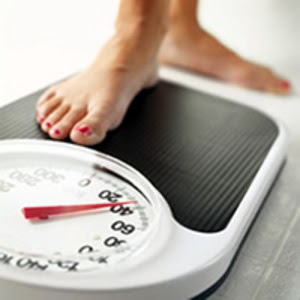Effect of Rapid Weight Loss on Heart

‘Lose 10 kilos in a week’ may sound tempting to try, but it also involves a great degree of risk. For instance, rapid weight loss, which includes extreme low calorie diet and stringent workout schedules besides restricting foods, may be harmful to your heart’s health.
[Read: Harmful Effects of Crash Dieting]
Effects on Functions of Heart
According to a research by the Weill Cornell Medical College, rapid weight loss puts the heart in danger by increasing the risk of heart attacks. Here’s how the heart’s functions are affected by rapid weight loss.
- A strict workout regimen may disrupt heart’s primary function of pumping blood and oxygen throughout the body. In a quest to lose weight quickly, the heart may not be able to adjust to the changes introduced impromptu.
- When you stick to a low calorie diet, the body may not get sufficient amount of nutrition. If the body fails to utilise and convert proteins into energy because of a strict weight-loss regimen needed for its functioning, the human heart could be severely damaged.
[Read: Tips to Lose Weight in a Healthy Way]
- With a change in weight, the blood pressure and heart rate also change. The changes may make one experience irregular heart rhythms, which could lead to heart failure.
- Anorexia nervosa is an eating disorder that may occur as a result of a low calorie diet. Limiting calorie consumption to the point of starvation raises the risk of heart diseases considerably. Reports by the University of Maryland Medical Center suggest that long-term complications of anorexia include high or low blood pressure, irregular heartbeats and a possible heart attack.
- Crash diets for quick weight loss may be fatal as they are likely to lead one to death from heart arrhythmias or irregular heartbeat. This happens when liquid formulas for weight loss fail to provide adequate nutrients to the body.
[Read: Lifestyle Habits that Promote Heart Health]
It is important to consider one’s heart rate when opting for weight loss products as doing so will keep one fit to exercise and burn the calories required for weight loss. If you are opting for a rapid weight loss program, it is important that you get your heart rate regularly and closely monitored by a doctor before, during and after the weight loss program. Should there be no hurry in losing weight, it is safe to opt for a slow but steady weight loss program. Besides, following a healthy weight loss program keeps the side-effects at bay.
The American Heart Association suggests weight loss for both cardiovascular health and aesthetics with a healthy diet (including plenty of fresh fruits/vegetables, whole grains and fat-free or low-fat dairy products) along with moderate physical activity.
-
Close Kept Secrets To Weight Loss Lesson 42
Lets have some fun! Right now, put on some butt-movin? music. Get up
-
Periodontal Disease Association with Endometriosis
There are many links between periodontal disease (perio) and ones g
-
The Stubborn Belly-Fat Solution
You′ve tried it all: cutting down
-
Get NeanderThin On The Cave Man Diet
Are you up to a cave man diet? You wont have to start living in a cave
-
Outdoor Fitness Program For Weight-Loss
If you are looking for ways to reduce th
-
Fat Loss: Top 10 Mistakes!
Are you having trouble getting rid of th
- DON'T MISS
- Reduce Tummy Fat - 3 Amazing Steps To Lessen Tummy Fat; Live & Learn With It
- Caralluma Burn Review ?Does Caralluma Fimbriata Work?
- New Year Resolution Part 5
- Womens Health and Fitness - Reducing Cortisol Levels Can Help You To Lose Weight
- Asian Weight Reducing Methods
- If You Want To Lose Weight Fast Hoodia Weight Loss Is For You
- Consumer Alert on Hoodia Diet Pills
- Is Liposuction An Option for Obese Youngsters?
- Want to Lose Weight Start Eating the Right Foods
- Being True To One's Nature Leads To Perfect Health and Balance




